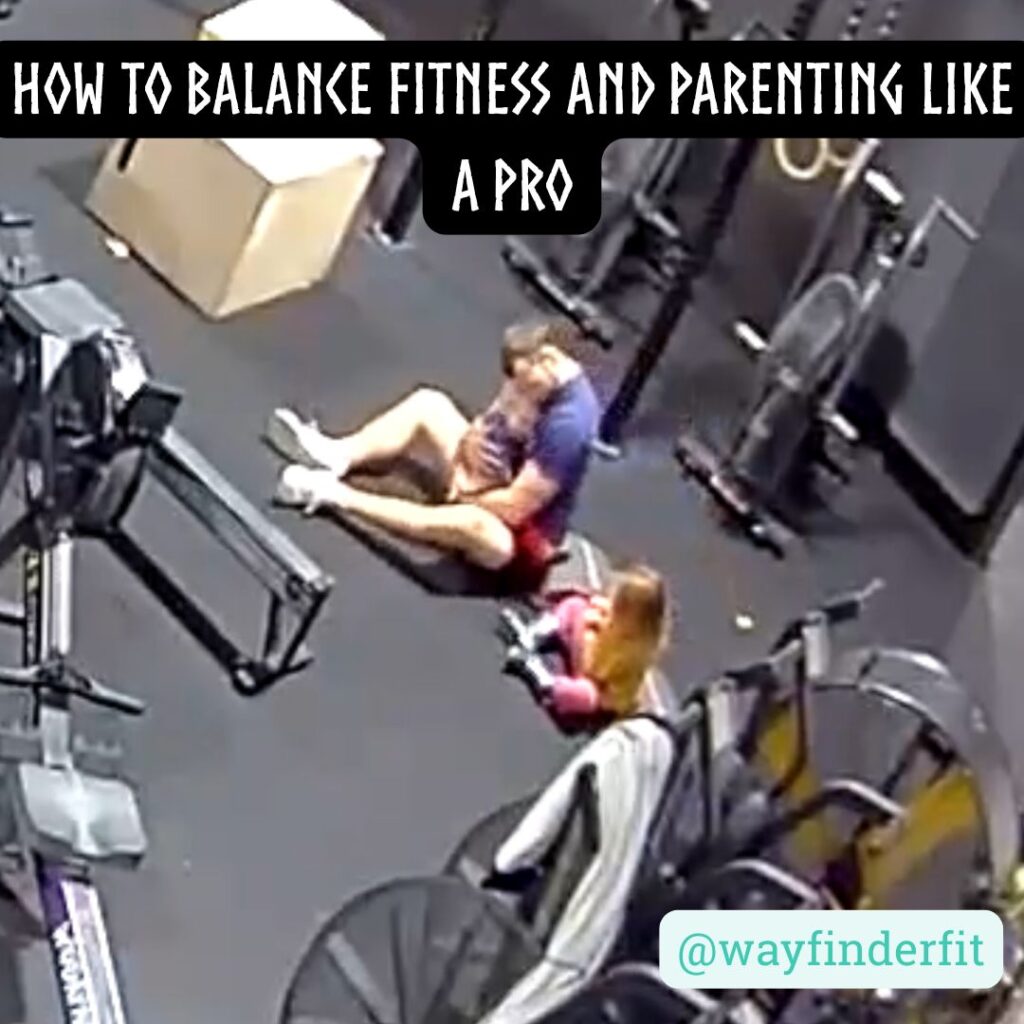
If you’re working full-time, raising kids, and keeping a household running, it can feel like there’s nothing left in the tank—let alone time for a workout. You’re not lazy; you’re overloaded. The point of this post isn’t to hand you a rigid plan you’ll abandon in a week. It’s to remind you that taking care of your health is not selfish—it’s how you lead your family well. Healthy parents have more patience, more energy, and a longer runway to show up for the people they love.
Shift the story you tell yourself
Most parents carry quiet guilt around “me time.” Reframe it as fuel time. You wouldn’t feel bad stopping for gas on a long road trip; training, sleep, and decent food are the fuel that keep you moving. Once you see it that way, the question changes from “Do I deserve this hour?” to “What’s the smartest way to invest in my family’s future today?”
Perfection is the next myth to retire. Busy seasons don’t reward all-or-nothing goals—they reward consistency. If you can carve out 20–30 minutes a few times a week, you’re in the game. Those small deposits compound faster than you think.
Design your week, don’t hunt for time
Time won’t appear; you create it. Treat your training like a real appointment. Put it on the calendar where it fits your life best: early before the house wakes up, during a kid’s practice, or right after work before you walk through the door. If you co-parent, trade slots and put them in a shared calendar so your training isn’t renegotiated every Sunday night.
The rest of the day offers sneaky opportunities. Walk during soccer practice instead of scrolling. Do a short mobility routine while your kid reads to you. Take a lap of the block while dinner’s in the oven. None of this looks dramatic on its own, but the message it sends—to your body and your kids—is powerful: we make time for what matters.
Keep the training simple—and repeatable
You don’t need a two-hour split routine or a garage full of gear. Think “strength plus movement” and keep it repeatable. Two to three short strength sessions a week—squats, presses, hinges, planks—plus a couple of brisk walks can change everything about how you feel. If you’ve got more bandwidth one week, do a little more. If life explodes the next, do a little less. The win is that you keep showing up.
Progress can be gentle: an extra rep, a slightly slower rest break, five more minutes of walking, a small dumbbell added to last week’s set. Those tiny nudges build confidence, and confidence makes the next choice easier.
Eat like a busy parent who cares (not like a contestant)
You don’t need a brand-new diet; you need fewer decisions. Build meals around a simple anchor—protein and plants—as often as possible. Eggs or Greek yogurt in the morning, a protein and a vegetable at lunch and dinner, fruit and water on standby. That’s not flashy, but it’s the kind of routine that survives school drop-offs, work deadlines, and youth sports.
Snacks aren’t the enemy; chaos is. Keep two or three “boring but clutch” options on hand (think cottage cheese and berries, a cheese stick and an apple, a beef stick and carrots). When you remove friction, you remove the need for willpower at 3 p.m.
Protect the multiplier: sleep
The hardest “workout” for most parents is bedtime—for themselves. You don’t have to overhaul your nights; shave 30 minutes off the doom-scroll and give it to sleep. Park your phone outside the bedroom, pick up a paperback, and let your brain decelerate. The difference in mood, patience, and training quality the next day is huge. When sleep improves, everything else gets easier.
Let the season you’re in shape the plan
Parenting moves in seasons: teething months, travel weeks, busy semesters, calm stretches. Your fitness can flex with that without losing momentum. When the week is light, enjoy longer sessions and a little more intensity. When the week is heavy, shrink the workout and keep the promise. Ten minutes of movement on a hard day keeps the identity intact: I’m a parent who trains. That sentence matters more than any single session.
And when life knocks you off rhythm, skip the drama. Missed Monday? Train Tuesday. Missed the morning? Walk at lunch. One skipped plan does not require a full reset. You’re not behind; you’re adapting.
Measure what actually matters
If the scale is your only scorecard, parenting will make you feel like you’re losing. Track the signals that tell a fuller story: clothes moving more easily, fewer aches, better sleep, steadier moods, an extra rep on a familiar weight, the patience to handle a long bedtime routine. Those are wins you can feel—and they’re the reasons you started.
Photos and simple measurements once a month can be helpful, but don’t underestimate the power of a training notebook. Two lines after each session—what you did and how it felt—turns vague effort into visible progress.
Model the life you want your kids to copy
Kids notice everything. When they see you lace up shoes instead of collapse on the couch, they learn that movement is normal. When they watch you build a plate with protein and vegetables, they learn what “real food” looks like. When they hear you say, “I’m going to the gym so I can be a better mom/dad tonight,” they learn that caring for yourself is part of caring for others. You’re not stealing time from your family; you’re investing it into them.
A simple way to start this week
Pick two training slots you can actually keep. Put them on the calendar. Set out your clothes the night before. Build each meal around protein and plants. Put your phone to bed outside the bedroom and turn the lights out sooner than usual. Then let the week be ordinary and do those small things anyway.
You don’t need perfect conditions. You just need a plan humble enough to survive real life—and the faith to stick with it. Strong, cared-for parents raise strong, cared-for kids. Start small, repeat often, and let the compound interest of consistency do its work.
If you want help tailoring this to your family’s rhythm, we’re here for you. You bring the life logistics; we’ll bring the structure, coaching, and support. 💙

